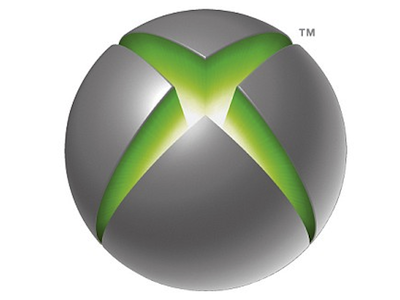Job Listings Reveal Cloud TV From Microsoft
Three new job listings reveal Microsoft's Cloud TV project.
Over the years, we've watched the Xbox 360 become less of a gaming console and more of an entertainment center, just as Microsoft had planed from the very beginning. It became more family friendly with the introduction of avatars in the New Xbox Experience update, and as of late, offers even more entertainment options by way of installing apps like a giant tablet. The only thing that seems to be missing thus far is an actual live TV service.
That may soon change. Microsoft's plans to offer streaming TV isn't anything new, but three job postings on Microsoft Careers, dated for October 31 and November 1, shows that the company is inching even closer to its goal of replacing your cable company's set-top box. The service is called Cloud TV, and the Redmond company is looking for two Software Development Engineers and a Development Lead:
Software Development Engineer-IEB-Cloud TV (815918)
Development Lead, Principal-IEB-Cloud TV (815921)
Software Development Engineer, Senior-IEB-Cloud TV (815827)
"Microsoft’s Interactive Entertainment Business is revolutionizing entertainment. IEB has a rich set of entertainment offerings from Xbox 360, Xbox LIVE to Zune Marketplace and Mediaroom," reads one job listing. "Our customer base is growing fast and our pace of innovation has been incredible with our latest product Kinect selling over 10 million units since its launch in November of 2010. We’re looking for a Software Engineer who is passionate about building awesome client applications for a new Cloud-based TV platform."
Preferred qualifications include a BS in Computer Science or equivalent, experience with web application technologies (HTML5/CSS3/JavaScript) and common frameworks (jQuery/knockout.js/sammy.js/less), experience with mobile and browser application development (iOS/Android/Windows 8/RT or IE/Webkit based browsers), and an agile development experience. Microsoft also wants a fast learner that can pick up new technologies rapidly.
So far it's unknown if Microsoft is using a code name, or plans to move forward with the Cloud TV brand. There's already a non-Microsoft CloudTV.com and a Cloud.tv website up and running, and ActiveVideo Networks currently owns the trademark for "Cloud TV". That said, Microsoft will likely stick with the Xbox branding unless it plans to cough up bags of money to get control of the "Cloud TV" label.
So when could we see this Cloud TV service? It's quite possible it will make its debut at E3 2013 in June along with the Xbox Infinity console. And as the job listings point out, this TV service won't be locked to the console itself, but instead will be offered through Microsoft's four-screen setup – desktop, tablet, smartphone and console – as a subscription service. Even more, it will probably be offered on non-Microsoft platforms like Android and iOS.
Get Tom's Hardware's best news and in-depth reviews, straight to your inbox.

Kevin Parrish has over a decade of experience as a writer, editor, and product tester. His work focused on computer hardware, networking equipment, smartphones, tablets, gaming consoles, and other internet-connected devices. His work has appeared in Tom's Hardware, Tom's Guide, Maximum PC, Digital Trends, Android Authority, How-To Geek, Lifewire, and others.
-
robochump No way the greedy cable companies will allow 3rd party receivers to steal precious lease fee monies!!! Hehe. I was also wondering when Apple or MS will be coming out with a Smart TV? Samsung def dominates that market. For now they will offer set-top boxes using the internet for now.Reply -
alidan robochumpNo way the greedy cable companies will allow 3rd party receivers to steal precious lease fee monies!!! Hehe. I was also wondering when Apple or MS will be coming out with a Smart TV? Samsung def dominates that market. For now they will offer set-top boxes using the internet for now.dont they have to, by law, allow you cards to access cable content if you use a 3rd party system? at least that was my understanding.Reply
that said, if microsoft gives me a netflix like service but for all my current channels (minus movies) i would probably consider paying for it. -
kinggraves I sure hope they plan on releasing an ISP too since cloud streaming of anything HD is a fantasy on the current US internet. The cable companies are also the internet companies, so all they have to do to prevent it is keep bandwidth caps in place or lower them and choke out competition. Not like I expect MS really cares. One side sells you services with a serious demand for bandwidth and the other charges you for it. It's a system where everyone wins, except for the consumer.Reply
